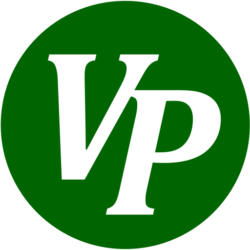– The proprietor of a patent shall have the exclusive right to use the invention, to authorise others to use the invention or to assign the patent to others.
– The patent shall have effect as from the date of publication of the mention of its grant in the Official Bulletin of the Industrial Property Office (hereinafter referred to as “the Official Bulletin”).
– The applicant shall be entitled to appropriate remuneration from any person who uses the subject-matter of the invention application after the application has been published. The right to appropriate remuneration may be asserted as from the date on which the patent has effect.
– An applicant filing an international application requesting grant of a patent in the Czech Republic and which has been published in compliance with the international treaty shall be entitled to appropriate remuneration only after the translation of the application into the Czech language has been published.
– The extent of the protection conferred by a patent or an invention application shall be determined by the terms of the patent claims. For the interpretation of the patent claims, the description and drawings shall be used.
– For the period up to grant of the patent, the extent of the protection conferred by the invention application shall be determined by the terms of the patent claims contained in the application. However, the patent, as granted or as amended in the revocation procedure, shall determine retroactively the extent of the protection conferred by the invention application, in so far as the protection is not thereby extended.
Prohibition of direct use
Nobody shall be allowed without the consent of the proprietor of the patent,
- a) to make, offer, put on the market or use a product which is the subject-matter of the patent, or to import or stock the product for this purpose, or to dispose with it by another manner;
- b) to use a process which is the subject-matter of the patent or to offer the process for use;
- c) to offer, put on the market, use or import or stock for this purpose the product obtained directly by a process, which is the subject-matter of the patent; identical products shall be held to have been obtained by means of the process, which is the subject-matter of the patent, when it is highly probable that the product was obtained by means of the process, which is the subject-matter of the patent, and in spite of reasonable effort, the proprietor of the patent was not able to determinate the really used process; unless the contrary is proved. In proving the contrary, rights conferred by the trade secret protection shall be respected.
Prohibition of indirect use
– Nobody shall be allowed without the consent of the proprietor of the patent, to supply or offer to supply a person, other than the person authorised to use the patented invention, with the means relating to an essential element of the invention and serving in this sense to put in into effect, when it is obvious in the circumstances, that these means are suitable and intended for putting the patented invention into effect. When the means are products commonly existing on the market, unless the third person induces the purchaser to commit the act, prohibited by the law.
Exhaustion of rights
The proprietor of the patent shall not be entitled to prohibit third persons to dispose with the product, which is subject-matter of the protected invention, if the product has been put on the market in the Czech Republic by the proprietor of the patent or with his consent, unless there exist the reasons for the extension of patent rights to the mentioned activities.
The authorisation to exploit an invention protected by a patent (licence) shall be given by written contract (hereinafter referred to as “the licence contract”).
The licence contract shall have effect in respect of third parties as from its entry in the Patent Register.
